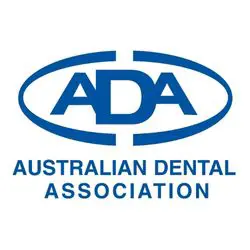
Eating disorders are serious, complex, and potentially life-threatening mental illnesses. They are characterised by disturbances in behaviours, thoughts, and attitudes to food, eating, and body weight or shape. Eating disorders have detrimental impacts upon a person's life and result in serious medical, psychiatric, and psychosocial consequences. Disordered eating sits on a spectrum between 'normal eating' and an eating disorder. This may include symptoms and behaviours of an eating disorder, but at a lesser frequency or a lower level of severity compared to an eating disorder.
Disordered eating behaviours, in particular dieting, are among the most common risk factors for the development of an eating disorder and can have significant impacts on a person's health and quality of life.
Disordered eating and eating disorders are common. Approximately one million Australians are living with an eating disorder in any given year. This equates to 4% of the population. Many more experience disordered eating, with approximately a third (31.6%) of Australian adolescents engaging in disordered eating behaviours within a given year. Disordered eating and eating disorders can affect people of all ages, gender, cultural background, socioeconomic group, and of body shape and size.
Disordered eating and eating disorder behaviours, including restrictive eating, self-induced vomiting, binge eating, and the misuse of laxatives and diuretics, can negatively affect the health of the mouth and can sometimes cause visible signs within the mouth. A dentist may observe signs of disordered eating or an eating disorder when examining the mouth.
Your dentist, as part of your health care team, is here to support you and may ask questions about your eating behaviours so that they may help you with your oral health. Your dentist can additionally support you to link in with your general practitioner who can complete further assessments and refer you to a mental health treatment provider. Accessing support from your GP and a mental health provider are important in helping you to overcome the disordered eating or eating disorder.
Common signs in the mouth
- Wearing away of the teeth (tooth erosion) from the acidic stomach contents softening the teeth.
- Weakened and chipped teeth following tooth erosion.
- Teeth can appear darker or more translucent as the white enamel layer is worn away.
- An increase in tooth decay.
- Teeth sensitivity to hot and cold temperatures.
- Slow, soft tissue (gums) healing due to a lack of vitamins and minerals.
- Damage to the back of the throat.
- Cracking at the corners of the lips.
- Visible decrease in saliva production.
- A dry mouth.
- Swollen salivary glands.
Seeking treatment for worn or damaged teeth
Discuss your oral health concerns with your dentist. Remember that any discussions with your dentist are private and will remain confidential. If you are experiencing disordered eating or an eating disorder, your dentist can help you to link in with a general practitioner who can complete an assessment, provide support, and link you in with mental health treatment.
Your dentist can assist you with your dental health by helping you minimise and repair the damage to your mouth and teeth that may have been caused by malnutrition and/or acid erosion associated with disordered eating behaviours. They will need to look at your teeth to make a treatment plan on how best to fix any worn or damaged teeth. The examination of your teeth may include X-rays, photos and moulds of your teeth.
If your teeth have become worn down, your dentist will discuss with you all available options to replace the missing tooth structure. Some damage may require specialist dental treatment, which may include a referral to a specialist.
Your dentist may recommend additional dental products to use at home when caring for your teeth.
Vomiting and tooth erosion
Vomiting is associated with an increase in the presence, severity, and risk of tooth erosion. Below are some tips to help you care for the health of your teeth and mouth.
After vomiting
Do not brush your teeth straight away. The acid that has contacted your teeth may soften the surface of the teeth and brushing them too soon can cause the surfaces to become worn.
It is best to try and wait at least 60 minutes before brushing. During this time, you can drink milk or water or rinse with a fluoride mouthwash to decrease the acidic mouth environment before brushing.
Stay well hydrated
Consume water to stay hydrated. Tap water is preferred because it contains fluoride which helps to protect and strengthen the teeth.
Being dehydrated can cause a dry mouth, which means less saliva. Saliva is an important protective factor within the mouth. It helps to flush and cleanse the mouth, it acts to decrease the acidity of your mouth and provides calcium and phosphate, which help to strengthen teeth.
Maintain good oral hygiene
Remember to brush your teeth twice daily with a soft toothbrush. You may be recommended to use a higher fluoride toothpaste to provide increased protection to your teeth. As well, floss or use interdental brushes to clean between your teeth daily.
Talk to someone
Seeking help as early as possible will reduce the severity and impact of an eating disorder. As each person has a unique experience with an eating disorder it is important to find an option that suits the needs of that individual.
Butterfly Foundation
The Butterfly Foundation is the national charity for all Australians impacted by an eating disorder and body image issues and those who support them. It has a help line, chat box and email if you want to talk to counsellors who are professionally trained and experienced in discussing eating disorders.
- Website: thebutterflyfoundation.org.au
- Support services (available Monday–Friday):
- Telephone: 1800 33 4673 (8 am – 9 pm)
- Text-based chat via the website (8 am – 9 pm)
- Email: support@thebutterflyfoundation.org.au at any time.
- National Eating Disorder Collaboration
The National Eating Disorder Collaboration has great up-to-date information on eating disorders and a list of state treatment inpatient, outpatient and community support programs.
Website: www.nedc.com.au
Health at Every Size Australia
Health at Every Size Australia has a directory providing listings of health practitioners around Australia who are experienced in offering services for people of all sizes to care for their health and well-being without weight stigma. The list includes psychologists, nutritionists, and GPs.
Website: www.haesaustralia.org.au/find-a-provider
Talk to someone immediately.
- Lifeline Australia: 13 11 14
- Kids Helpline: 1800 55 1800
For more information
It is possible to reduce disordered eating behaviours and recover from an eating disorder. With the right team and support, recovery is possible. If you think that you or someone you know may have an eating disorder or is engaging in disordered eating, it is important to seek help. The earlier you seek help, the closer you are to recovery. Your GP is a good first contact to seek support and access eating disorder treatment.
The National Eating Disorders Collaboration (NEDC) provides evidence-based information on the prevention and management of eating disorders, and information about recovery and support services within your state or territory.

This content was written in collaboration with the National Eating Disorders Collaboration.




